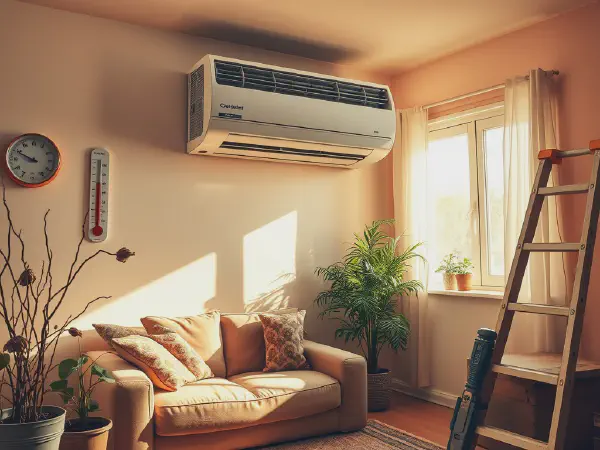What to Do When Your AC Is Not Blowing Cold Air

Air Conditioning Troubleshooting: A Comprehensive Guide
Air conditioning troubleshooting is essential for maintaining comfort in homes and businesses, especially during the hot summer months. When your air conditioning unit fails to operate efficiently or stops working altogether, understanding the common issues and solutions can save you time, money, and unnecessary discomfort. In this article, we will explore the basics of air conditioning troubleshooting, frequently encountered problems, DIY solutions, when to call professionals, preventative maintenance measures, and considerations for upgrading your system.
The importance of air conditioning troubleshooting cannot be overemphasized, as it not only enhances the functionality of your unit but also contributes to energy efficiency and longevity. Proper troubleshooting can help identify simple fixes that homeowners can perform on their own, as well as assist in recognizing when professional help is necessary. With a little knowledge, most people can effectively troubleshoot their AC systems and keep them running smoothly.
While troubleshooting your air conditioning system, it is crucial to start with a few basic principles. First, ensure that the thermostat is set correctly, and check if the power supply is functioning. Secondly, inspect the air filters and ductwork to ascertain that airflow is not being obstructed. By taking these initial steps, you can potentially resolve many common issues before delving deeper into more complex repairs.
In this guide, we will highlight the common causes of air conditioning problems, offer DIY solutions, outline when to seek professional repair services, discuss preventative maintenance practices, and provide insights on upgrading to more efficient systems. By the end of this article, you will have a comprehensive understanding of air conditioning troubleshooting that will empower you to maintain your cooling system effectively and efficiently.
Whether you are a seasoned DIY enthusiast or new to HVAC systems, this guide will provide you with the knowledge and resources necessary for successful air conditioning troubleshooting, ensuring you remain cool and comfortable during the heat of summer.
Common Causes of AC Not Blowing Cold Air
One of the most common complaints regarding air conditioning units is that they fail to blow cold air. This issue can stem from several factors, one of which is a refrigerant leak. Refrigerants are crucial for the cooling process, and when there is a leak, the system cannot function effectively. Additionally, low refrigerant levels can lead to increased strain on the compressor, potentially causing severe damage over time.
Another reason your AC may not be blowing cold air is incorrect thermostat settings. If the thermostat is set to 'heat' or to a temperature higher than the ambient temperature, the unit may not cool effectively. Regularly checking and calibrating the thermostat settings can prevent this common oversight.
Dirty air filters can also severely impact air conditioning performance by obstructing airflow and reducing the system's ability to cool effectively. Over time, filters can become clogged with dust, pet hair, and other debris, leading to significant temperature discrepancies. Checking and replacing dirty air filters regularly can improve your system's performance and efficiency.
If you find your unit has an issue, troubleshooting why your Ac Not Blowing Cold Air can save you time and money.
DIY Solutions for AC Problems
Cleaning air filters is one of the simplest and most effective DIY solutions for AC problems. To clean or replace your air filters, turn off the unit, access the filter compartment, and remove the filter. Use a vacuum cleaner or wash the filters with water (if washable), and allow them to completely dry before reinstalling. Check and clean your filters every month, especially during peak usage seasons.
Another effective DIY solution is checking circuit breakers to ensure that there is power to the AC unit. If the air conditioning system fails to turn on, inspect your home's circuit breaker panel for tripped breakers, and reset any that are off. Additionally, check fuses and replace any burnt fuses as needed to restore power to your air conditioning system.
Inspecting ductwork for leaks and blockages is a more involved DIY method of troubleshooting AC issues. Leaky ducts can significantly impair the efficiency of your cooling system, leading to wasted energy and thermal discomfort. Visually inspect ducts for obvious gaps and use duct tape or mastic sealant to seal any leaks. Ensuring that ductwork is clear and properly insulated also helps maintain consistent airflow throughout your space.
Professional AC Repair Services
There are various signs that indicate when it's time to call a professional for AC repairs. If you notice unusual noises, persistent leaks, or an odd smell from your AC unit, it’s crucial to seek assistance from a qualified technician. Additionally, if your system is blowing warm air despite being set to cool, or if your energy bills have suddenly increased without explanation, contacting a professional is advisable.
Understanding AC repair costs will help you budget for necessary maintenance. While costs can vary depending on the type and extent of the service needed, it is wise to set aside funds for routine maintenance visits, as well as unexpected repairs. It's also beneficial to inquire about service contracts that include annual inspections, which can save you money in the long run.
When selecting an HVAC technician to handle your repairs, consider their experience, reputation, and customer reviews. Verify that they are licensed and insured, and avoid choosing a contractor solely based on the lowest price. Building a relationship with a trusted HVAC technician can result in better long-term service and more effective maintenance of your system.
Preventative Maintenance for AC Units
Regular filter changes are a key component of preventative maintenance for AC units. Generally, it's recommended to change or clean filters every 1-3 months, depending on usage, household dust levels, and pet ownership. Maintaining clean air filters enhances airflow and improves your system’s cooling efficiency, ultimately extending its lifespan.
Creating seasonal maintenance checklists can help you prepare your AC unit for the cooling season. This checklist should include cleaning the outdoor condenser unit, checking refrigerant levels, inspecting electrical components, and clearing debris from around the unit. Implementing these measures at the start of each cooling season ensures your system is ready to operate efficiently.
Being aware of signs that your AC needs maintenance is crucial for preventing larger issues down the line. Symptoms such as poor airflow, strange noises, frequent cycling, or unusual odors are all indicators that your air conditioning system may require attention. Addressing these concerns promptly will help reduce the risk of costly repairs in the future.
Upgrading Your Air Conditioning System
When considering an upgrade for your air conditioning system, energy efficiency ratings should be a primary consideration. Units with higher SEER (Seasonal Energy Efficiency Ratio) ratings tend to operate more efficiently and can significantly reduce energy costs over time. This stands as a vital factor as you evaluate your options for newer systems.
Different types of AC systems are available, including central air conditioning, ductless mini-split systems, and window units. When deciding on an upgrade, consider factors such as square footage, layout, and specific cooling needs for your space. Choosing the right AC system will enhance both comfort and efficiency in your home.
Lastly, smart thermostats can greatly enhance your AC system's performance by providing better temperature control and monitoring. These devices can learn your habits and automatically adjust temperatures to optimize performance, leading to significant energy savings. Investing in a smart thermostat can be an effective way to improve your overall air conditioning experience.
